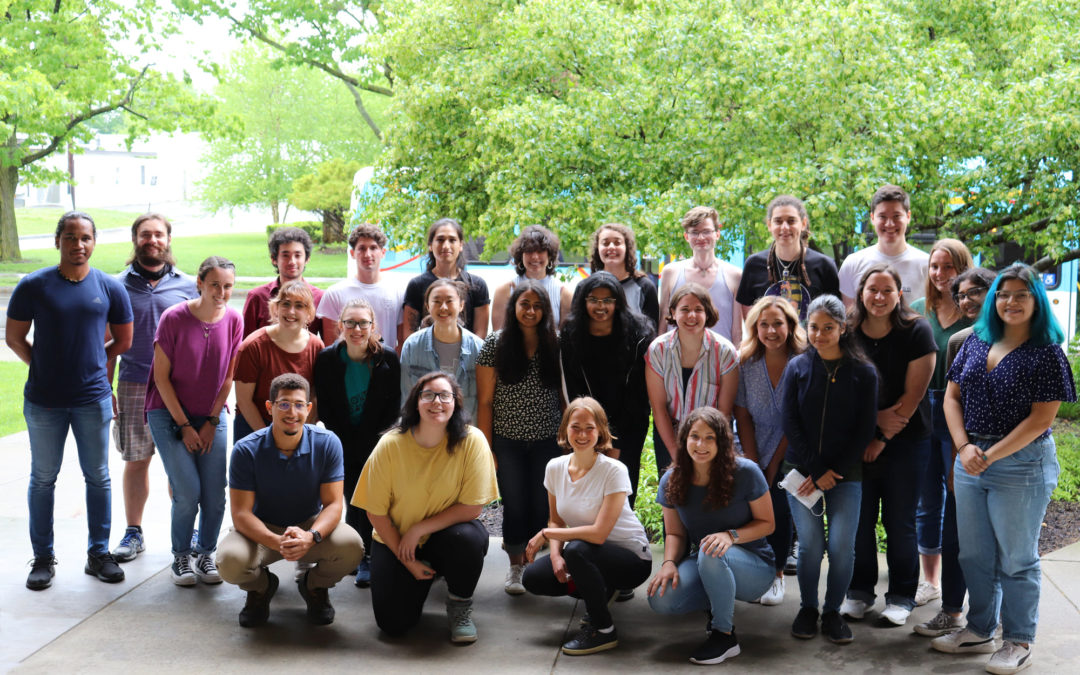

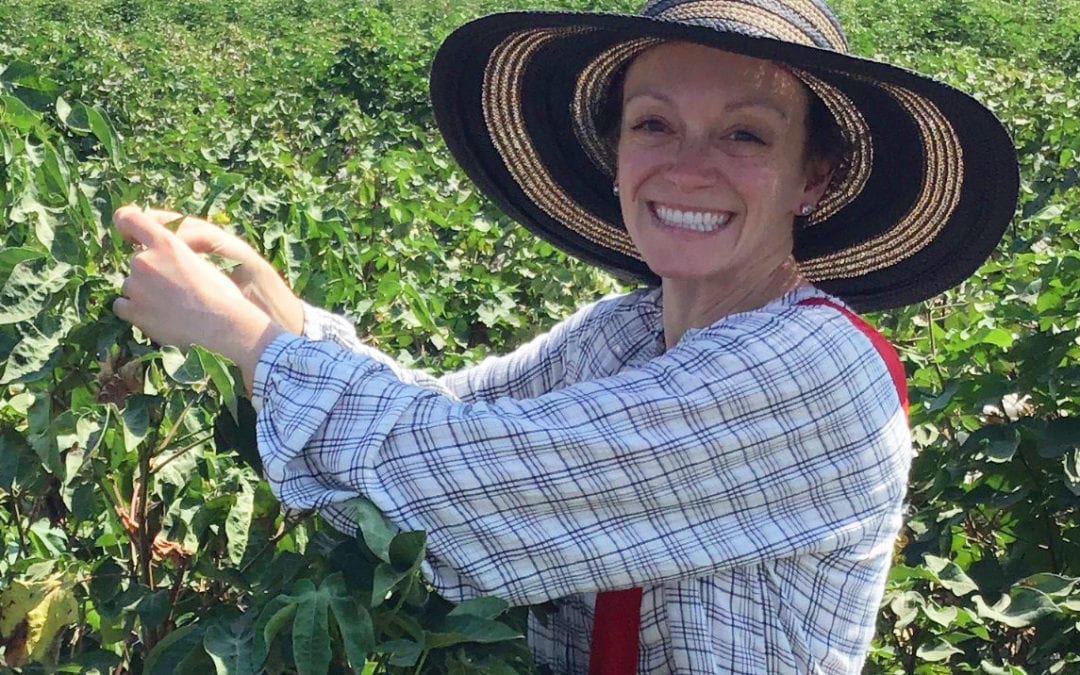
Michelle Heck Receives Grant to Study Devastating Crop Viruses
Plant viruses in the Luteoviridae family devastate many crop varieties, including potatoes, small grains and cotton. The viruses are spread by sap-sucking aphids, which transmit the pathogen into a plant’s vasculature as they feed. Unfortunately, no adequate...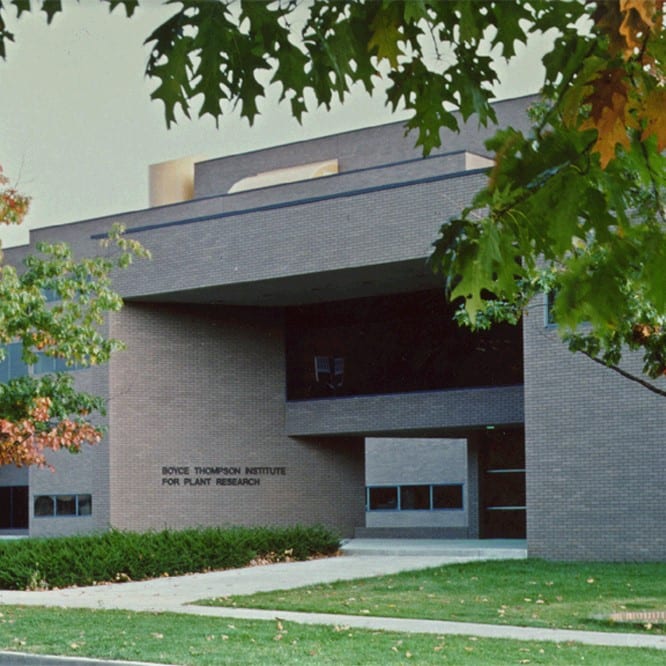
BTI Awarded Numerous Grants
While the past few months have disrupted all sense of normalcy, BTI researchers and staff have remained productive while working from home, or as parts of skeleton crews within the building. As the Institute uses a phased approach to slowly reopen our facilities, a...
Congratulations Spring 2020 Graduates!
We are pleased to announce that six BTI researchers received their degrees from Cornell University this spring. Congratulations to our newest alumni: Jason Hoki, Schroeder lab, PhD in Chemistry & Chemical Biology, Dissertation title: “Development of...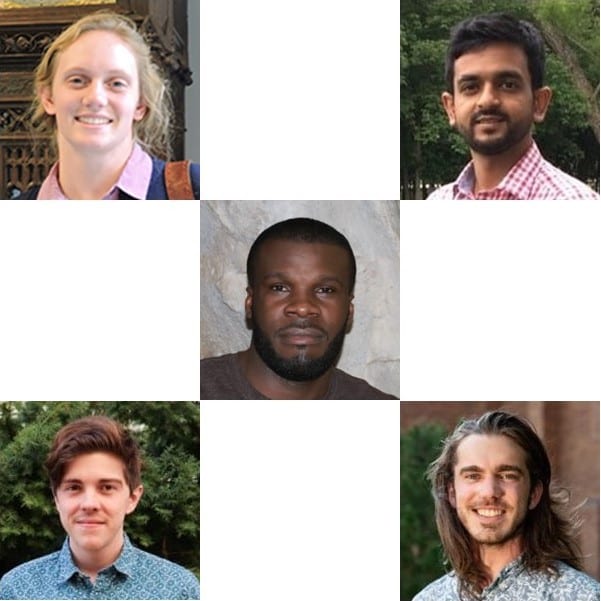
BTI Graduate Students Receive Schmittau-Novak Grants
We would like to congratulate five BTI graduate students who are Spring 2020 Schmittau-Novak Grants Program recipients. Supported by a bequest from the estate of Jean Schmittau in honor of Joseph Novak, Cornell University Plant Biology Professor Emeritus, the...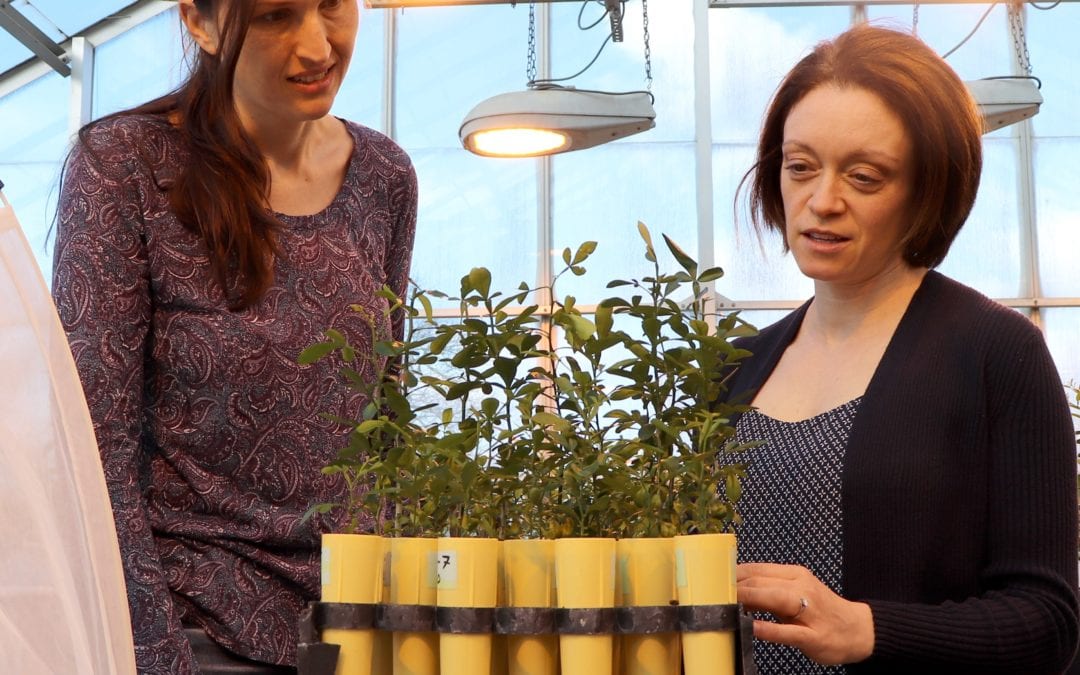
Harnessing Psyllid Peptides to Fight Citrus Greening Disease
Citrus greening disease, also called huanglongbing (HLB), is a bacterial infection of citrus trees that results in small, misshapen and sour fruits that are unsuitable for consumption, ultimately killing the tree. Because there is no cure, HLB is a major threat to the...
BTI’s Michelle Heck and Joyce Van Eck Guest on Podcasts
Boyce Thompson Institute is happy to share that two of our faculty members recently appeared as guests on popular podcasts. The content of these podcasts illustrate the breadth of research being done at the Institute to help increase global food security, improve...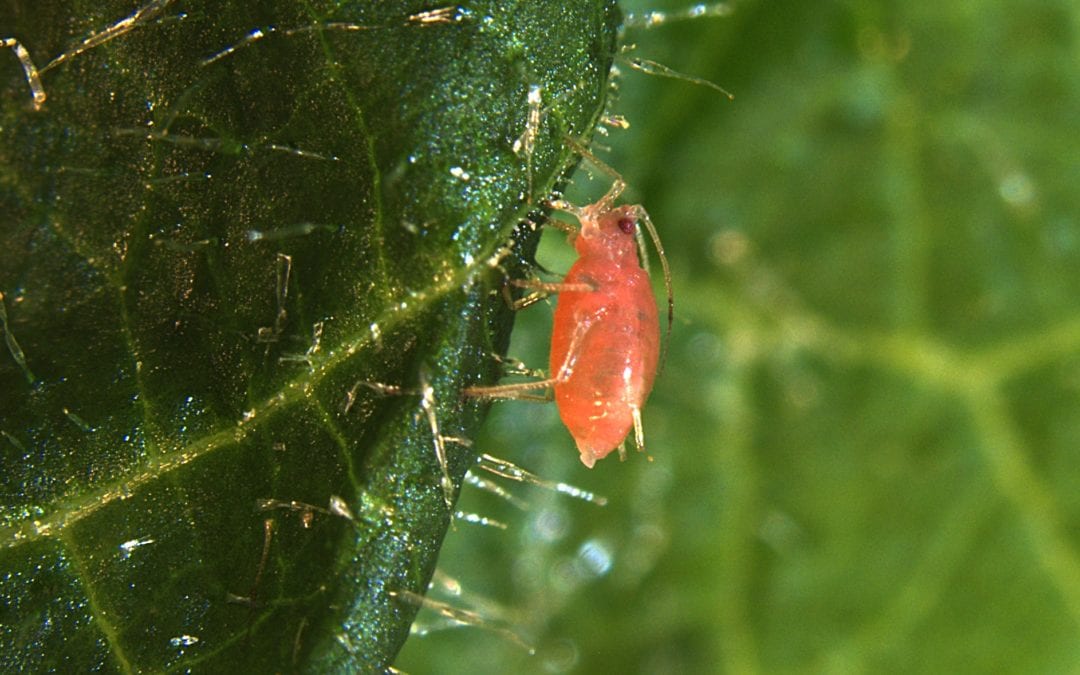
BTI Researchers Discover Interactions Between Plant and Insect-Infecting Viruses
Aphids and the plant viruses they transmit cause billions of dollars in crop damage around the world every year. Researchers in Michelle Heck’s lab at the USDA Agricultural Research Service and Boyce Thompson Institute are examining the relationship at the molecular...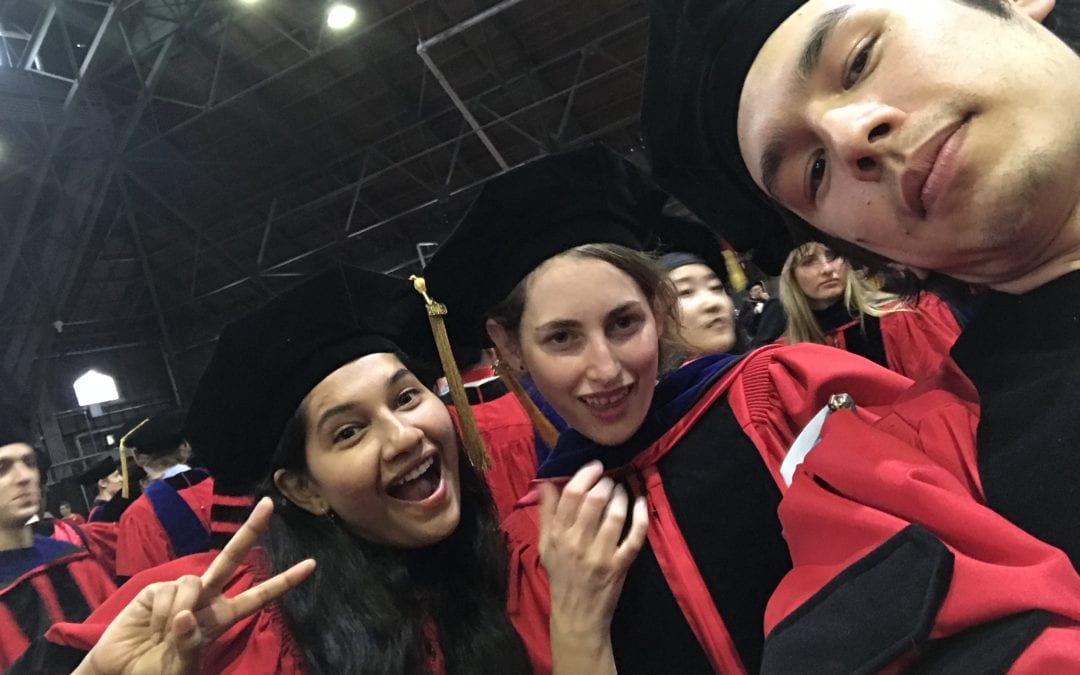
Congratulations to BTI’s PhD Graduates!
We are pleased to announce that seven Boyce Thompson Institute researchers received their PhD degrees during the Cornell University commencement ceremony on May 26. Congratulations to our newest alumni: Mariko Alexander, Heck lab, “Searching for the missing...
BTI’s Olivia Gomez Places 4th in APS Councilors’ Challenge
The Boyce Thompson Institute is pleased to announce that Olivia Gomez, a third-year undergraduate researcher in Michelle Heck’s lab, has placed fourth in the American Phytopathological Society’s Councilors’ Challenge. “Thank you to my mentor Michelle and to the...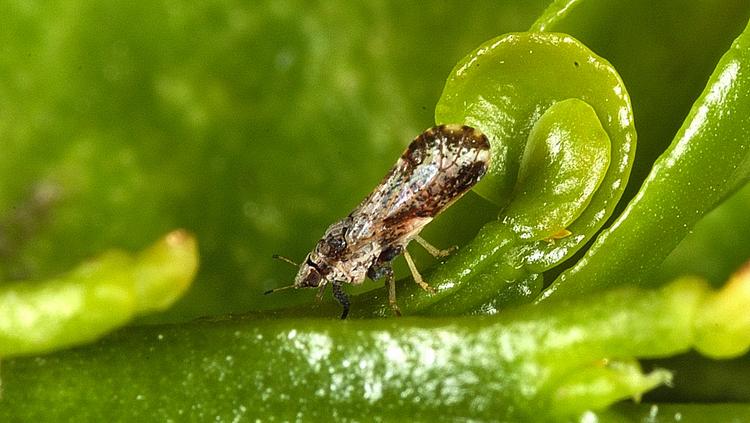
Blood, sweat and tears: All in a day’s work fighting citrus greening disease
Around this time last year, PhD student Angela Kruse and postdoctoral scientist Dr. John Ramsey were huddled over microscopes, using tiny needles to painstakingly extract blood, also known as hemolymph, from 300 Asian citrus psyllids – insects about the size of...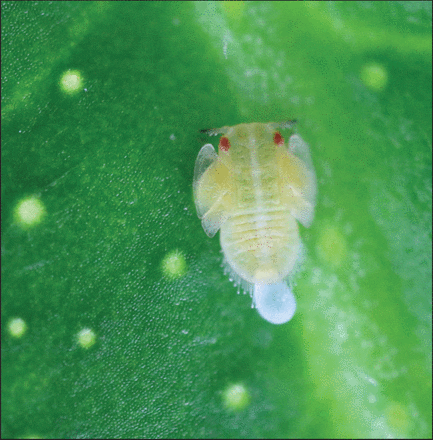
Research reveals a new direction for halting the citrus greening epidemic
New clues to how the bacteria associated with citrus greening infect the only insect that carries them could lead to a way to block the microbes’ spread from tree to tree, according to a study in Infection and Immunity by scientists at Boyce Thompson Institute (BTI) and the Agricultural Research Service (ARS).
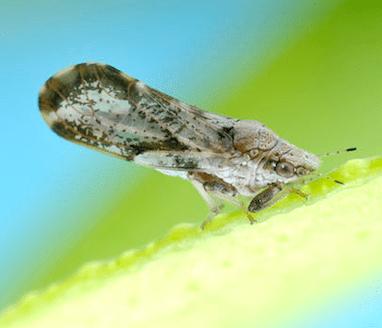
International team collaborates to decipher the Asian citrus psyllid genome
BTI’s Mueller and Heck Labs, in collaboration with 21 partner institutions, recently published a draft assembly and annotation of the D. citri genome.
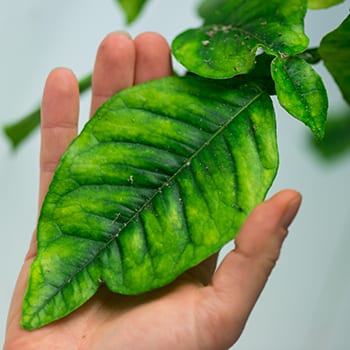
Blue-bellied insects may play a role in fight against citrus greening
New research finds that the Asian citrus psyllid responds to the citrus greening bacterium by producing an oxygen-transporting protein called hemocyanin. The protein not only turns them blue, but suggests that they are trying to fight off the infection.

Cilia receives Presidential Early Career Award
Michelle Cilia has been selected to receive a Presidential Early Career Award for Scientists and Engineers (PECASE), which recognizes outstanding, government-funded scientists who show great potential for becoming leaders in their field and for expanding the frontiers of scientific knowledge.
Citrus-growing regions face different pressures
Citrus growers are uniting to save their groves from citrus greening disease and to fund research into solutions, but growers in California face different challenges than those in Florida, report BTI and USDA researchers.

Citrus Greening Pathogen Has Gut-Wrenching Effect on Insect Vector
A new paper from the Cilia lab reports that the Asian citrus psyllid mounts an immune response against the bacterium that causes citrus greening disease – a discovery that may be useful for developing a treatment against the devastating epidemic.

Students Become Gene Detectives to Fight Citrus Greening
A group of students and experts work together through video conferencing to identify the genes in the genome of the newly sequenced Asian citrus psyllid, the insect that spreads the bacterium that causes citrus greening disease.

“Good” and “Bad” Bacteria in the Fight against Citrus Greening Disease
The bacterium believed to cause citrus greening disease creates multiple changes in both the Asian citrus psyllid that carries it and the beneficial bacteria that live within the insect.

BTI Scientists Envision the “Future of Food”
What will your dinner plate look like in 2050? With discoveries from the Boyce Thompson Institute, future crops may have more nutrients and greater resistance to insects, drought and disease.

New Cases of Citrus Greening Disease Emphasize Dire Need for Solutions
The detection of 10 new citrus greening disease cases in California citrus trees weighed heavily on attendees of a recent citrus greening research meeting.

Collaboration of Citrus Greening Researchers Begins 5-Year Plan to Save Citrus
A diverse group of researchers has teamed up to develop a therapeutic treatment for citrus greening disease, a bacterial infection that threatens the future of the U.S. citrus industry.

Professor Jander Comments on Citrus Greening Research
EPA has granted temporary approval of two genes from spinach to be used in citrus plants. “There is a critical need to go beyond citrus to find novel resistance genes that provide protection…”

BTI Hosts “Genetic Freaks” Workshop at Girls’ Science Event
Postgraduate Society members at BTI host EYH (Expanding your Horizon) workshop to help girls understand genetics and feel more comfortable in the world of science.

All’s Fair in Love and War (on Insects)
Patricia Pinheiro was drawn to the study of insects like a moth to flame. As a grad student in the Cornell Entomology Department and Assistant Professor Michelle Cilia’s lab, Pinheiro studies insects that feed on plants and transmit pathogens.
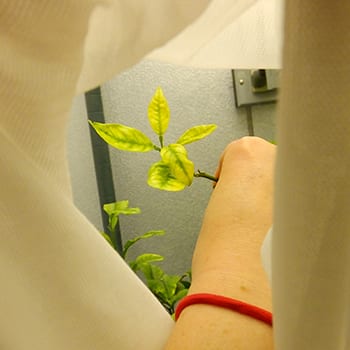
Cilia Lab at International Citrus Greening Conference
Assistant Professor Michelle Cilia and four members of her lab attended the International Conference for Huanglongbing. They joined hundreds of other researchers in Orlando, Fla. Feb. 9-13, to present their research on this disease.

New equipment opens up ‘mass’ive possibilities
The Boyce Thompson Institute starts off 2015 with a generous gift from the Triad Foundation and researchers are about to open their most exciting present: a high-resolution mass spectrometer. The instrument, which can determine the chemical formula – and possibly even...
Hemiptera Conference Held at Cornell, December 2014
Georg Jander, Michelle Cilia and Angela Douglas organized Hemiptera (sucking insects) conference held on December 4, 2014.
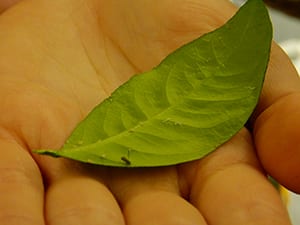
Congratulations, Michelle Cilia!
Herbert L. Rothbart ARS Early Career Scientist of the Year and the Schroth Faces of the Future award.
